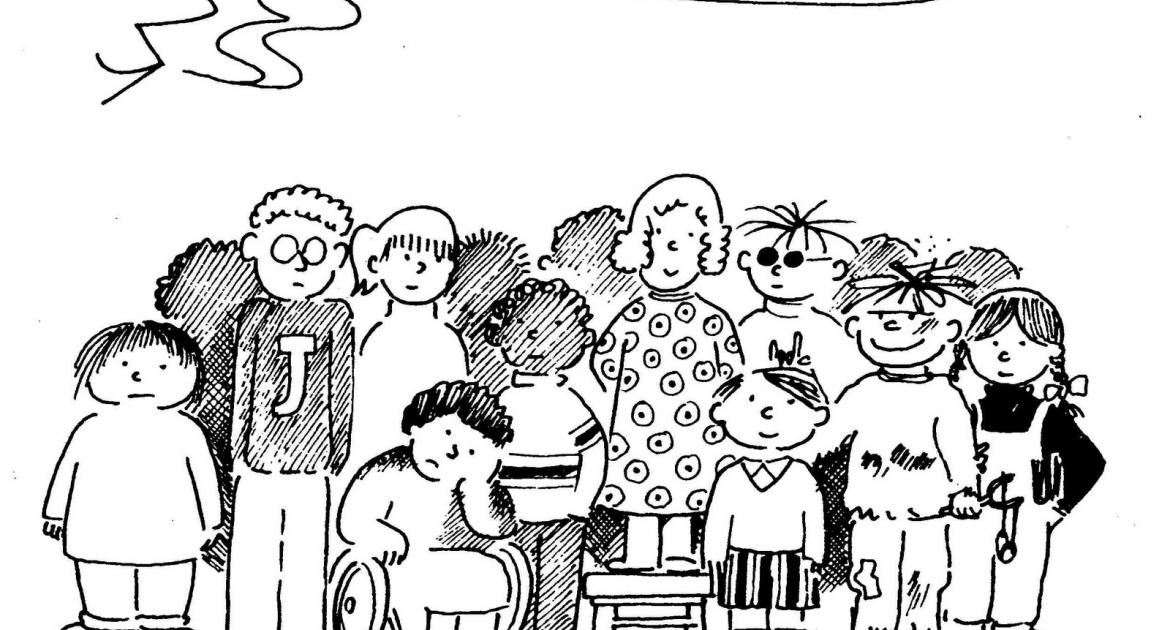Inclusive City

Inclusive City is the name under which the workshop Funcionamientos joins the Madrid Urban Laboratory call for projects. In its second consecutive year, the Funcionamientos workshop hopes to receive and give development space to those proposals that, seen from the general subject area of the framework event, will be focused on the generation of inclusive, accessible and participative designs that can be applied to urban environments, based on the idea of "functional diversity". As part of this important idea, in this Funcionamientos workshop event, matters relating to infancy, old people and the city are being introduced and studied as new items, but matters to do with migration or in relation to sexes, all closely linked to inclusion when you think of the groups to be considered, could also be related – why not? Within institutions, the subject areas structure departmental areas that sometimes mean that a job has to be done where the person is seen in a fragmented fashion because of being dealt with by parts. Showing this allows the question to be turned into a problem and, thus, provides access to a perspective that deals with inclusion in an integral fashion so that it can happen.
The city considered or interpreted as a "Common ecosystem of ways to function" is a notion that is susceptible to exploration throughout the workshop, a notion that connects - we think - with that of the ecosystem of the common future, or of the future as commons, if we fully position ourselves in a time perspective.
These approaches hold an underlying idea of the city as a space that is open to all, to be participated in by all those who inhabit it, who make it the "place" for their daily routines, part of a shared history, "theirs", in a word, "appropriated" and given meaning.
The open designs, seen from diversity, do not rest on the idea of everyone being the same, but more of everyone being different, and this difference is, precisely, that which defines the diversity from which such design practices are planned and acquire intention and meaning, that are applied to the design of anything within these common ecosystems of ways to function, which have already been mentioned.
Social appropriation of urban space implies, thus, giving it meaning and meanings, through significant uses of it. This is why we think that the city must be contemplated as a laboratory where innovative citizen practices take place continuously that, as they are not detected by the usual indicators or current systems for measuring innovation, invite us to plan and carry out a creative and re-creative exercise to rescue and shine a light on this "hidden" innovation and look at the context through which it may be put into practice in a more relevant and efficient way.
Many and infinite are the places from which we watch reality, and when it is time to show our own perspective, we must assume that all knowledge is always partial and situated. Therefore, questions like: what communities currently enrich the common ecosystem of ways to function of this social ecology of commons and keep their voice alive, and what other communities could join them and come into existence? are questions that take on their full meaning in our workshop.
Different communities transfer their knowledge and their practices, through the permeability implicit in the common ground of interests, objectives, concerns, problems, values and purposes that they share with other communities in the common territory that the city is for all, the urban environment, where such knowledge and practices are put into play, whether strategically or tactically. Faced with the fundamental question: How can we transcend established practices, representations and values in order to take on particular new ways of being and doing, new ways to work, that constitute a new way of living? - a possible answer may be to think about the generation, production and establishment of new spaces where new ideas can find a place and come alive, where the new practices, representations and values that constitute and shape them can be nourished. Spaces, of course, not exclusively linked to what is urban, physical and material, but in a very relevant way to what is digital and so-called "digital culture" as a possible way of encompassing all these new ideas.
At the end of the day, the core of the physical space that the city represents is that it becomes a place for experiences, for perceiving and making it possible for different bodies to participate and be part of it. In this regard, living together acquires relevance, as that instance that allows that common territory to be built, that spatial sense of ownership and living, an “ethos” that makes us brothers in a house that belongs to all of us.



 Medialab-Matadero Madrid
Medialab-Matadero Madrid